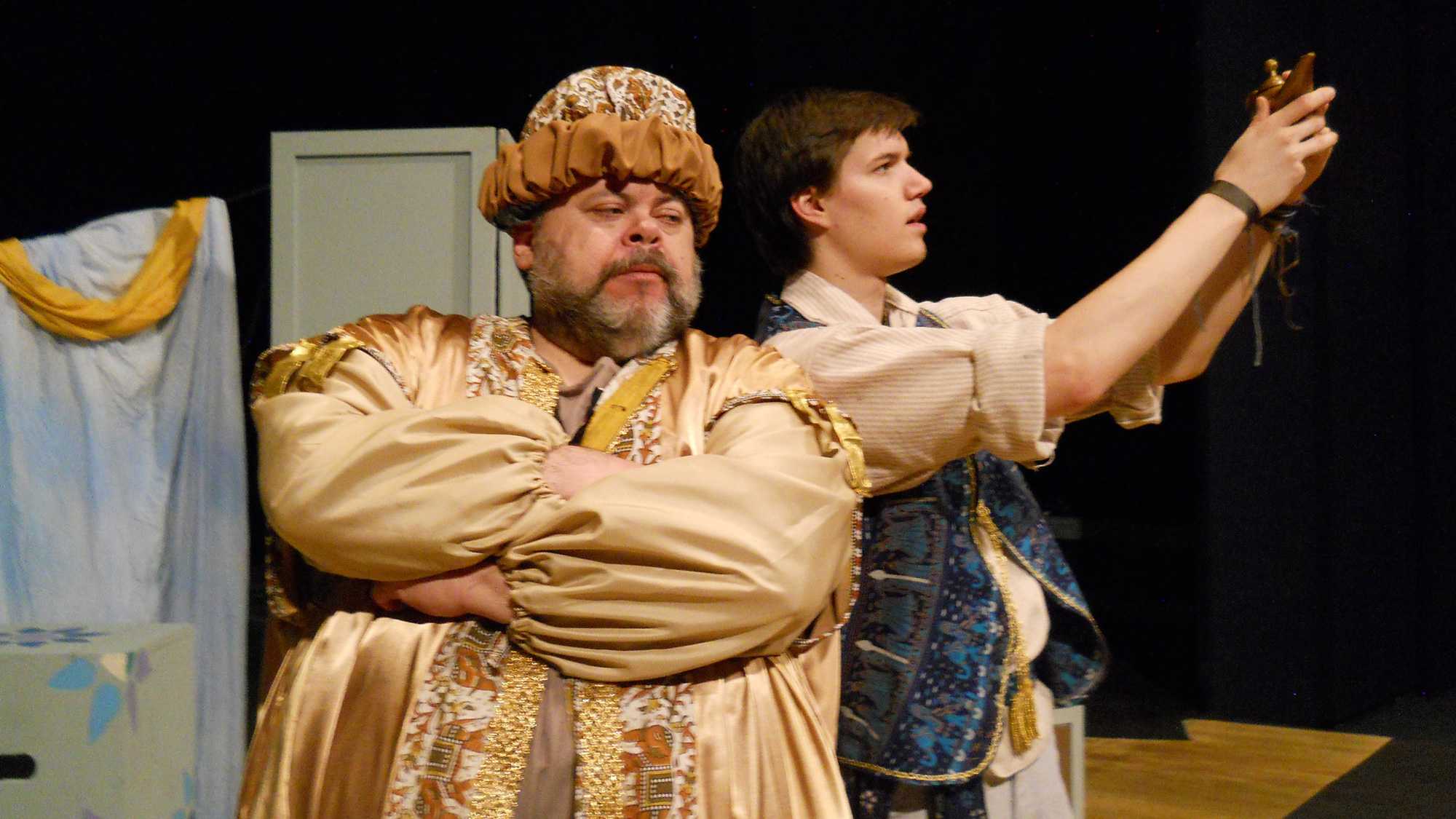To produce a play, a theater company must build a set, sew costumes and memorize lines. For most groups, these duties are carried out by separate teams. The Appalachian Young People’s Theatre’s performers carry out all of them by themselves.
Founded 44 years ago, The AYPT provides a venue for children across western North Carolina to see shows they otherwise not might be able to see. The company not only benefits children, but the AYPT also provides students with the opportunity to be a part of a travelling theater company.
“The program is a three credit hour course that students take,” Teresa Lee, director of the AYPT said. “In that course they learn how to produce and do all of the elements of production.”
Such elements of production include building sets, sewing costumes and building props. All on top of acting in the play. “They become their own self-contained touring troupe,” Lee said.
While the course is required of all theater education majors, Lee said taking the class does not guarantee someone a part in the productions. Students have to meet with Lee, read for the part, perform a singing audition and generally be a good fit for the part.
One of the returning students, William Butland, a senior elect media broadcasting major, never thought he’d perform in a play.
“I was taking theatre for social change as part of my minor,” Butland said. “One of my teachers pointed me in the direction of the audition. I auditioned and got the part, and it was too great an opportunity to pass up on.”
Butland, a former University of South Florida student, came to App after a 20 year hiatus from school.
“A job with a family company took me away,” Butland said. “So I worked in the construction industry for 15 years.”
Butland said he relocated to Boone to take advantage of the cheaper cost of living, as well as to live closer to his sister.
“I figured while I’m up here, I might as well finish school,” Butland said.
Butland is now getting his degree in electronic media broadcasting with a minor in theater.
“I’ve always loved film and there’s no film program at App, so it’s a way to get in the field,” Butland said.
Having Butland and his outside perspective on the cast has been great for the rest of the students, Langston said.
“It’s been good to have [Butland] there to show what the professional world really looks like,” sophomore theater education major Laura Langston said.
Langston is the stage manager for “Aladdin.” As stage manager, she is responsible for blocking out the scenes, as well as acting as a liaison between the cast and the director. On top of that, she works with the elementary schools the company tours at.
“I really love working with kids, so it’s been cool to go to elementary schools and interact with them,” Langston said.
Langston auditioned for a part in the production but mentioned an interest in stage manager duties as she felt she needed the experience in order to be a better teacher.
Production days for the cast were long. The students would arrive to their rehearsal location at 9:30 a.m. and work on the set and their costumes until 11:30 a.m., Langston said. After a short lunch break, the cast rehearsed for three more hours.
Butland found the sporadic rehearsals difficult. “It’s not a long play so it’s not that hard,” he said. “But the rehearsing being so few and far between makes it hard.”
Langston said she hated the long days. “The more times you rehearse a show without an audience, the drier it becomes and you forget it’s a good show,” she said. “You hate every minute of it.”
Despite the frustrations of rehearsal, however, Langston said putting the show on stage makes it all worth it.
“The second you get to take it to an audience and you see the freshness of it, it makes you excited to do theater again,” Langston said.
Aladdin will be performed in the I.G. Greer Studio theater at 7 p.m. on April 1 and April 2-3 at 2 p.m. The playwright of “Aladdin” will be in attendance on April 2. This play is open to the public, tickets are $5 for students and $10 for adults.
Story by: Austin Hale, A&E Reporter

